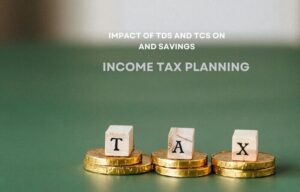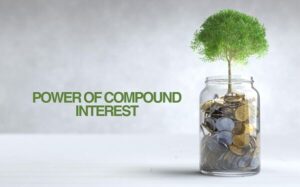Investing in Commodities: How Czech Traders Use Gold, Oil, and Agricultural Assets

Commodity investing has long been a crucial strategy for traders looking to diversify their portfolios and hedge against inflation. In the Czech Republic, traders are increasingly turning to gold, oil, and agricultural assets as key investment opportunities. These commodities provide not only a store of value but also the potential for substantial returns, especially during times of economic uncertainty.
The Appeal of Commodity Investing for Czech Traders
Gold and other commodities serve as a hedge against inflation, helping investors protect their wealth from currency devaluation. With the Czech koruna fluctuating against the euro and other major currencies, commodities offer a means to safeguard purchasing power.
Commodities have a low correlation with traditional assets like stocks and bonds, making them an excellent tool for risk diversification. Czech traders often incorporate commodities into their portfolios to mitigate market volatility.
During economic downturns, investors tend to flock to safe-haven assets like gold. The COVID-19 pandemic and ongoing geopolitical tensions have reinforced the importance of commodities in managing risk.
Gold: A Traditional Safe-Haven Investment
Gold has historical significance as a store of value and remains one of the most sought-after investments in the Czech Republic. With inflationary pressures and central bank policies influencing the economy, gold serves as a reliable asset to preserve wealth.
Investment Vehicles for Gold
- Physical Gold: Czech investors often buy gold bars, coins, and bullion for direct ownership.
- Gold ETFs and Futures: Exchange-traded funds (ETFs) and futures allow traders to gain exposure to gold prices without holding physical assets.
- Gold Mining Stocks: Investing in gold mining companies provides indirect exposure to gold price fluctuations.
Multiple factors, including global economic stability and interest rate movements, shape gold prices. Central bank policies, particularly regarding gold reserves management, also play a significant role in determining price fluctuations. Additionally, supply and demand trends in industries such as jewelry and technology contribute to the overall market dynamics, influencing how traders assess gold’s investment potential.
Oil: Navigating Energy Markets
As an energy-dependent country, the Czech Republic relies on oil imports for transportation and industrial production. This makes oil prices an essential factor in economic planning and investment strategies.
Investment Options in Oil
- Oil Futures and CFDs: Traders use futures contracts and contracts for difference (CFDs) to speculate on oil price movements.
- Energy Company Stocks: Investing in companies involved in oil exploration, refining, and distribution.
- Oil ETFs: Funds that track crude oil prices, offering a simpler way to gain exposure to oil markets.
Oil prices fluctuate due to several key factors. Geopolitical risks play a significant role in shaping supply chains, with conflicts and sanctions affecting production and distribution. OPEC policies and production quotas directly impact global supply levels, influencing price trends. Additionally, the worldwide shift towards renewable energy sources creates long-term pressures on oil demand, as governments and industries seek sustainable alternatives.
Agricultural Commodities: Trading in Wheat, Corn, and Other Softs
Agriculture is a fundamental sector of the Czech economy, with the country producing key crops such as wheat, barley, and corn alongside livestock farming. These agricultural commodities not only contribute to local food security but also present significant opportunities for traders looking to capitalize on price movements in global markets.
Czech traders invest in agricultural commodities through futures contracts, which allow them to buy and sell crops like wheat and corn at predetermined prices. This method helps manage risks associated with price volatility and supply fluctuations. Another popular approach is investing in agribusiness stocks and exchange-traded funds (ETFs) that focus on farming, food production, and agricultural technology companies. These investments provide exposure to the broader agricultural sector without direct involvement in commodity trading.
Several factors influence the prices of agricultural commodities, including climate conditions and natural disasters that impact crop yields. Government subsidies and trade policies also play a significant role in affecting production incentives and international trade dynamics. Additionally, global demand and concerns about food security drive market fluctuations, making agricultural assets an essential consideration for Czech traders.
Risks and Challenges in Commodity Trading
Commodities are known for their high price volatility, influenced by geopolitical events, weather patterns, and market speculation. Traders must be prepared for sudden price swings.
Many commodity investments, particularly futures and CFDs, involve leverage. While leverage can amplify gains, it also increases the risk of significant losses.
The Czech commodity market is subject to both local and EU regulations. Traders must stay informed about legal requirements, reporting standards, and tax implications.
Strategies for Czech Traders in Commodity Investing
Understanding the right strategies is crucial for Czech traders looking to maximize their returns in commodity markets while managing risks effectively.
Long-Term vs. Short-Term Trading
- Long-Term Investments: Gold and agricultural land are often seen as long-term investments for wealth preservation.
- Short-Term Speculation: Oil and soft commodities provide opportunities for short-term trading based on market trends.
Technical and Fundamental Analysis
- Technical Analysis: Using charts and indicators to identify price trends.
- Fundamental Analysis: Examining supply and demand factors, geopolitical influences, and macroeconomic trends.
A balanced approach to commodity investing ensures risk management. Czech traders often allocate a percentage of their portfolios to commodities alongside stocks, bonds, and real estate.
Conclusion
Commodity trading offers Czech investors an excellent way to hedge against inflation, diversify portfolios, and capitalize on market trends. Gold, oil, and agricultural assets each have unique characteristics that make them appealing investment options. However, traders must remain aware of risks such as price volatility and regulatory challenges.
By using a combination of long-term and short-term strategies, Czech traders can navigate the complexities of the commodity market effectively. For those interested in advanced trading tools and platforms, Saxo Bank CZ provides a robust platform for commodity trading and other financial instruments.

Pranab Bhandari is an Editor of the Financial Blog “Financebuzz”. Apart from writing informative financial articles for his blog, he is a regular contributor to many national and international publications namely Tweak Your Biz, Growth Rocks ETC.






